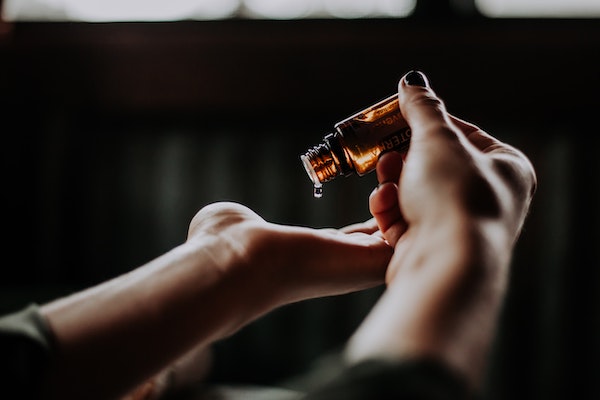Explore natural remedies for treating your eczema

A quarter of people in the UK use complementary and alternative medicines. Those living with eczema are leading the pack, with many people taking treatment into their own hands when their prescribed ones just aren’t cutting it.
The growing interest in sustainability and the health of the planet has also played a key role in this movement towards more natural, organic healthcare alternatives. This week, we spotlight three natural treatments for eczema and the effects they have on the planet.
Keep in mind that these alternative treatments are not a cure for eczema, as there is no cure for the condition. But, if they work for you they can go a long way in reducing inflammation and discomfort.
As with any natural or prescribed skin treatment, before trying anything on your skin you should seek medical advice. This is especially true for those living with eczema because everyone's triggers are different!
Coconut Oil
You might have used it for cooking or as a hair mask but did you know that coconut oil could help with your flare-ups too? The oil has anti-inflammatory and antimicrobial properties and it is also super-efficient at sinking into the skin.
Studies have shown that the oil is effective at reducing the presence of bacteria, fungi, viruses and other pathogens on the skin. Coconuts contain lauric acid which is converted to monolaurin by the body. Monolaurin is a natural compound that is responsible for fighting off the bad stuff.
This means that coconut oil provides the skin with a barrier to infection and reduces the risk of developing itchy and uncomfortable eczema patches.
If you think coconut oil could help your eczema, make sure to only apply ‘virgin’ or ‘cold-pressed' products to your skin. These do not have extra chemicals from processing and harvesting in them that could irritate the skin. By using these unprocessed, organic versions, you are doing your bit for the planet too!
Jojoba Oil
This fixed oil comes from the seeds of the Jojoba plant. Some studies have shown the anti-inflammatory and antibacterial effects of the natural alternative, which could make it the perfect treatment for your eczema.
The botanical substance is almost identical to sebum, the oil that your body creates. So much so that your body cannot tell the difference between the two! This means that your body absorbs jojoba oil and rehydrates the skin very quickly.
Jojoba oil is molecularly a wax, so it is very good at creating a seal on the skin barrier. This means it has hypoallergenic properties and is less likely to cause allergic reactions than other natural oils like olive oil.
This alternative also has a very low environmental impact because the oil is extracted from the seed of the plant. This means that it is highly renewable and extraction of the oil is not dependent on the cutting down of trees.
Dead Sea Salt bath
A weak skin barrier is one of the key causes of atopic dermatitis, so making sure that your skin is strong is key to safeguarding against flare-ups. A 2005 study found that bathing for 10 minutes in a warm, Dead Sea Salt infused bath does wonders for making the skin stronger.
This type of salt is rich in magnesium, calcium, sulfur and zinc which are all minerals that play a vital role in healthy skin. These nutrients are not found in table or Epsom salts so turning to your salt shaker won’t do the same job!
If water is a trigger for your eczema flare-ups, you should make sure to bathe for between five to 10 minutes. You should also apply moisturiser after patting your body dry to lock in the extra moisture!
There's controversy around whether the harvesting of this mineral from the bottom of the Dead Sea is sustainable. For a long time, environmentalists have been calling for better protection against the falling water level. However, industrialisation and the diversion of the Jordan River take most of the blame for this. It’s important to remember that these minerals are a non-renewable resource so once they are gone, they are gone!
Information contained in this Articles page has been written by talkhealth based on available medical evidence. The content however should never be considered a substitute for medical advice. You should always seek medical advice before changing your treatment routine. talkhealth does not endorse any specific products, brands or treatments.
Information written by the talkhealth team
Last revised: 9 November 2023
Next review: 9 November 2026
